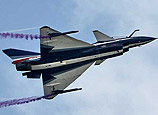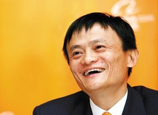
Nathan Chow, DBS Bank's Greater China economist, said another contributing factor is that the eurozone debt crisis seems to have stabilized for now, without further signs of deterioration.
Pressure from major economies is not a major driver of the yuan's appreciation, he said.
"The ratio of current account surplus to GDP has declined to 2 percent this year from 10 percent in 2007, reflecting that the pressure on China to appreciate the yuan is smaller than before."
He said there were expectations the yuan could reach 6.2 to the dollar by the year end.
But expectation of the yuan depreciating remains strong as a rebound in the world's second-largest economy - which has slowed for seven consecutive quarters - still faces challenges.
"This trend of appreciation is unlikely to be sustainable and we expect the yuan to depreciate moderately against the US dollar in December," said Yao.
Although the currency's onshore spot rate continued to strengthen, the offshore one-year non-deliverable forwards of the yuan indicated it will depreciate by as much as 1.8 percent in the next 12 months, dampening its popularity among global traders.
















 'Gangnam style' life of young rich in Chongqing
'Gangnam style' life of young rich in Chongqing


![]()
